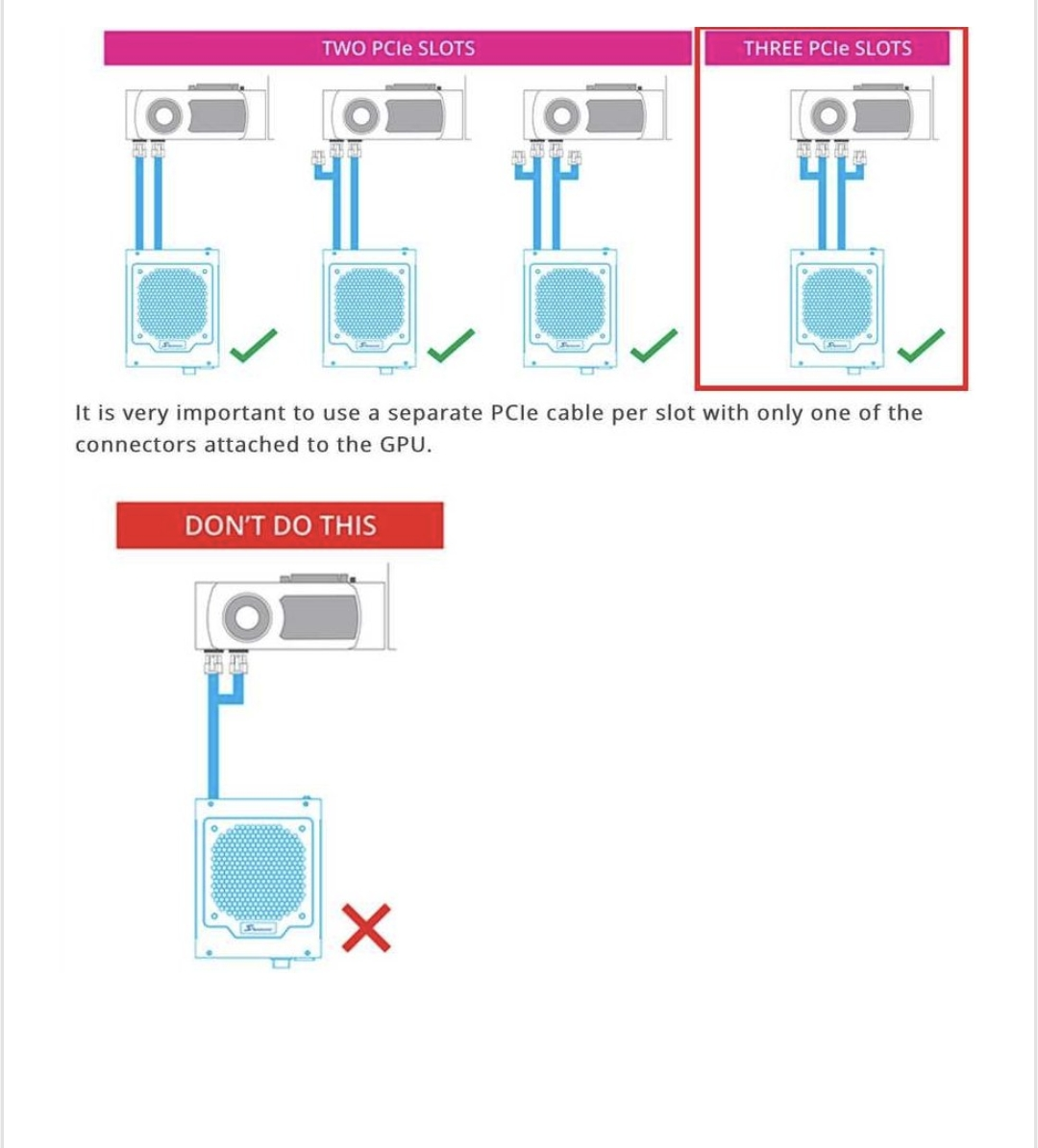this post was submitted on 27 Aug 2024
105 points (94.9% liked)
PC Gaming
8524 readers
944 users here now
For PC gaming news and discussion. PCGamingWiki
Rules:
- Be Respectful.
- No Spam or Porn.
- No Advertising.
- No Memes.
- No Tech Support.
- No questions about buying/building computers.
- No game suggestions, friend requests, surveys, or begging.
- No Let's Plays, streams, highlight reels/montages, random videos or shorts.
- No off-topic posts/comments.
- Use the original source, no clickbait titles, no duplicates. (Submissions should be from the original source if possible, unless from paywalled or non-english sources. If the title is clickbait or lacks context you may lightly edit the title.)
founded 1 year ago
MODERATORS
you are viewing a single comment's thread
view the rest of the comments
view the rest of the comments

You only need to ask yourself why the PSU manufacturer would bother including the second connector on the same cable if it wasn't ok to use it.
If you use a third party extension/splitter that would be another story but it doesn't look that way in the diagram.
I seem to remember they started doing those daisy chain power connectors back in the SLi days. Take the GeForce 6800GT for example, which was a single slot card rated for 67 watts and had a single 6-pin power socket. You could safely drive two of them in SLi on a single 150 watt PCIe power cable. Hell they'd probably both run fine on motherboard power.
Many cards used to use 3 connectors so you'd run two lines and a third from the second connector of one of the lines.
The diagram op posted is from nvidia and seasonic and fixes many stability issues, not fire hazzards